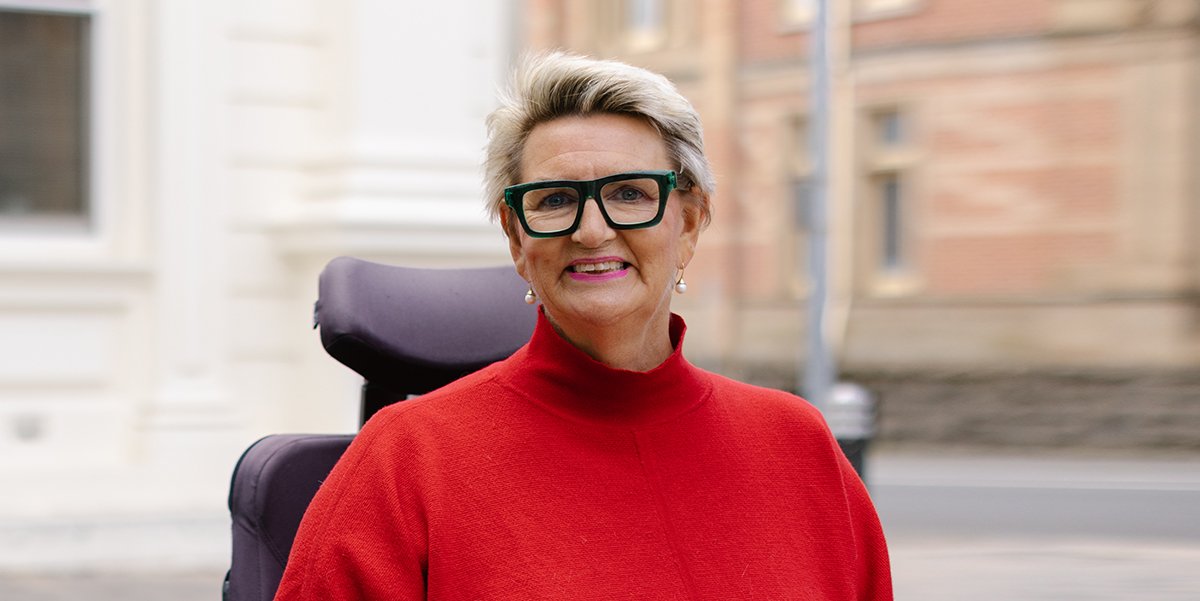Jim Colville
"This colony was to be open to all who came. By 1974 we were open seven days a week for anyone who needed help. And I worked seven days a week on the front line."
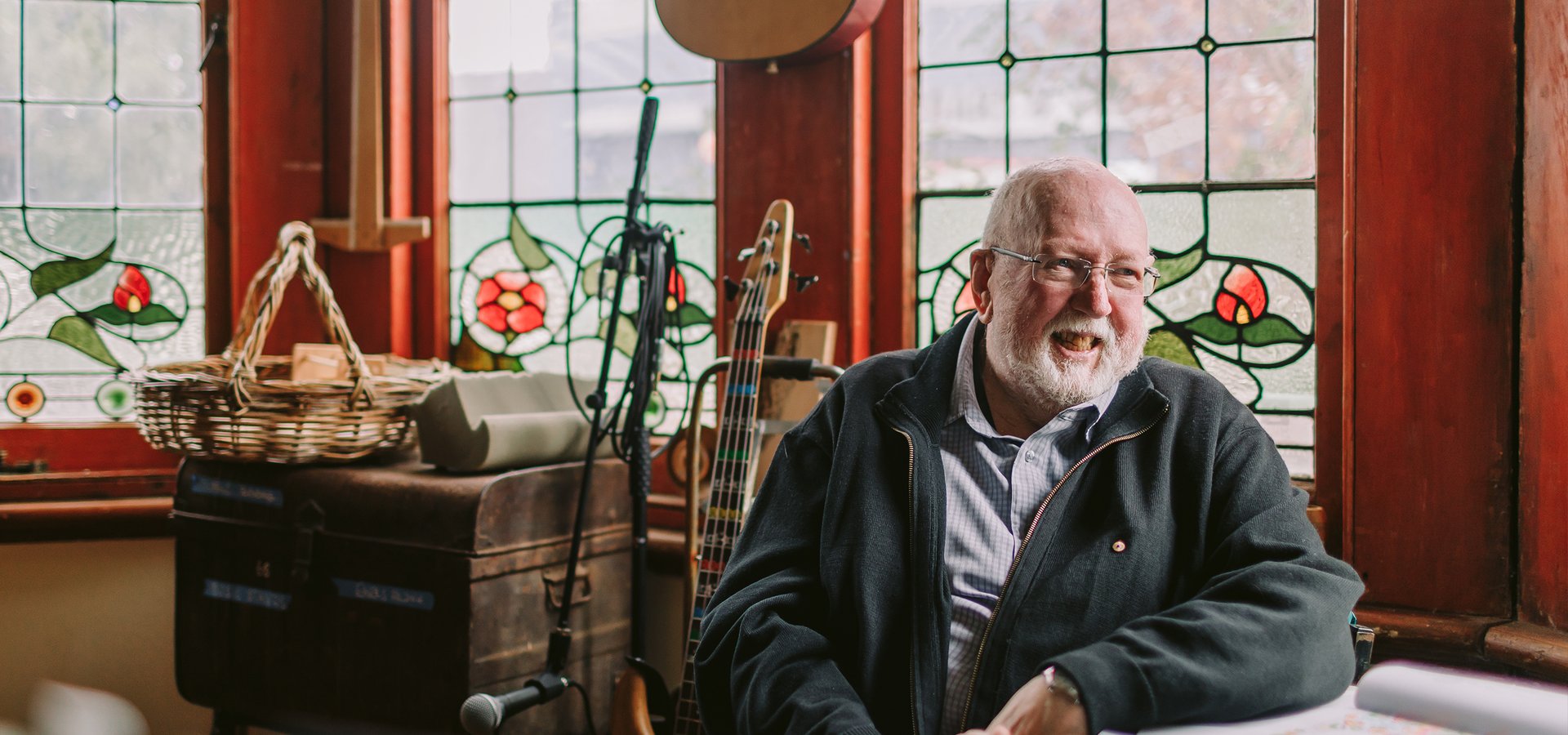
"My family had been through a lot over the years, financially and otherwise, and I was treated absolutely terribly at school. I asked questions. A lot of questions, such as 'why is that being done when it hurts people?'"
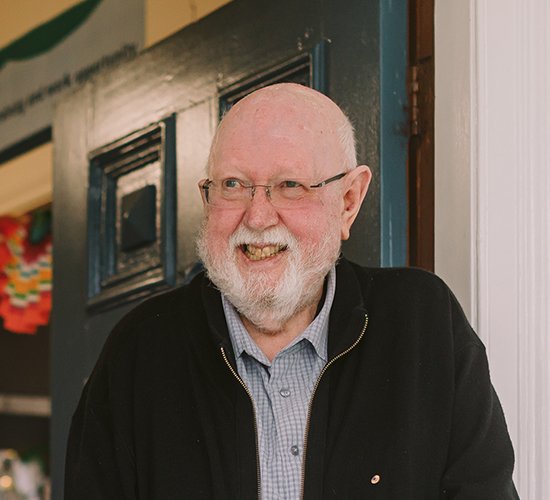
Warning: This story mentions suicide and sexual violence
Some people are born charmed, with charisma and money and connections. They mistake luck for talent and achievement, and make it their goal in life to preserve these conditions for success. Change, for them, is dangerous.
Other people are like Jim Colville.
“My family had been through a lot over the years, financially and otherwise,” he says, in his cozy Bagdad dining room, with a fire burning in the hearth. “And I was treated absolutely terribly at school, even by teachers in those days. I was overweight. And I asked questions. A lot of questions, such as 'why is that being done when it hurts people?'. Back then, if you were seen to be non-conforming, the teacher made you stand in the fireplace with your head up the chimney. Your parents said you must have deserved it.”
In Victoria, where Jim grew up, teachers told him he wasn’t important, that he wouldn’t achieve anything in life. “I think, for kids who are bullied, it can go two ways. You either become bitter and you become a bully or you go the other way and you feel for people who have been treated like you. It opens up empathy.”
Jim left school early, but he went back. Six years later he started training for the Ministry, and graduated into what was then called the Methodist Church. “They were very strict on alcohol, but they were very open to working in the community and serving people. Today it is the Uniting Church. Despite its faults, women can serve in any role without prejudice.”
While Jim had found trouble in theological school as well, for asking too many questions, at this age, no one could put him in the fireplace. So they sent him to Tasmania. At the time, 1967, these appointments were not in high demand. The minister at his first posting, East Devonport, had deeply conservative ideas about the role of the Church.
Jim did not.
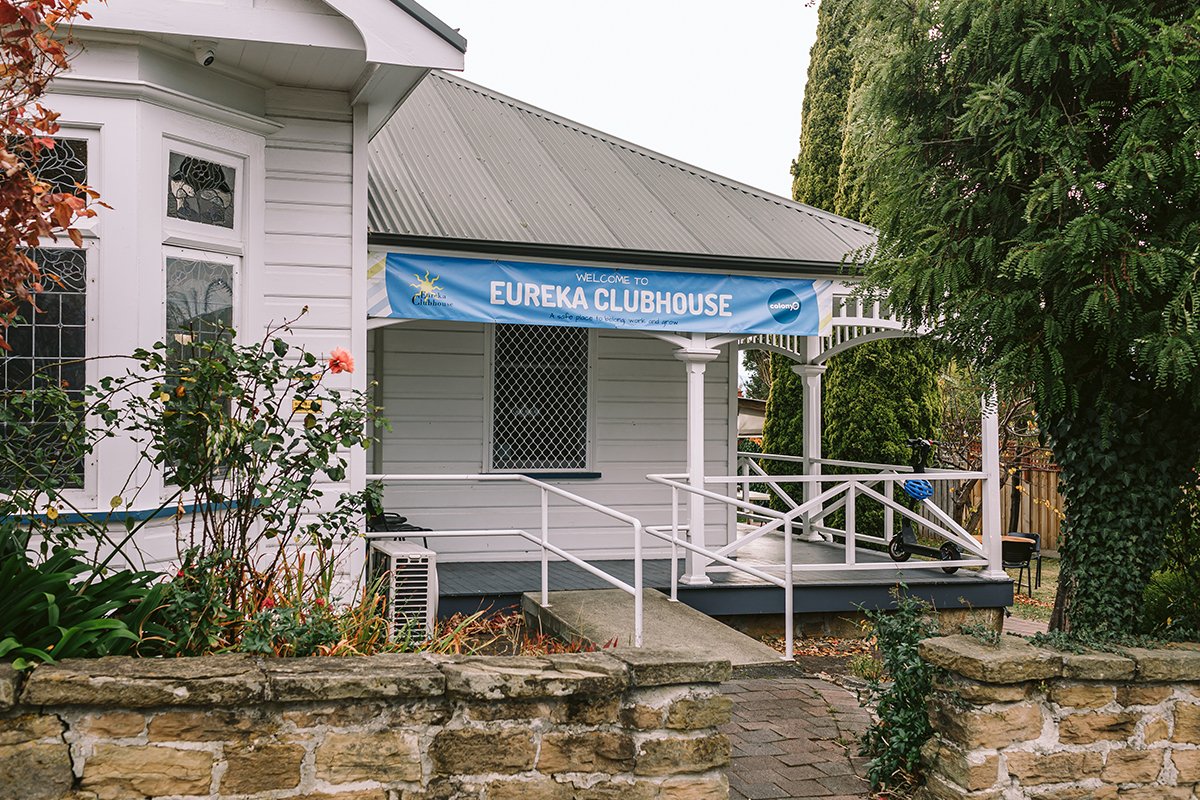
The Church had built a new building, with bright fluorescent lights. Jim took over the old building, and started a youth group. “These were kids who were getting in trouble,” says Jim. “And it wasn’t always easy. One day they said they wanted to help paint the room. I got permission through the trustees, as they didn’t see any harm in it. And the young people painted it black. So I was in trouble.
“A year later I asked if they could repaint it. The trustees, who were upset by the black paint, agreed. The kids painted it shiny black.”
Jim looked out for the outcast, the insecure, the troubled, the lost. He led with his heart, not his pocketbook. And he made traditional thinkers uncomfortable.
The little church with black (and shiny black) walls in Devonport hosted modern music, dancing, and a wedding where the officiant – Jim – left out the word Jesus. He worked with Aboriginal leaders and tried to help, rather than convert, young people. Margaret, his wife, was constantly attacked for wearing the wrong clothing, so she quietly asserted her independence by wearing mini-skirts and makeup.
The church moved the Colvilles to Glenorchy, where they were greeted with an article in the newspaper that made them sound like rock ‘n’ roll fiends who intended to shake up Greater Hobart.
Jim and Margaret only wanted to help, and soon they found a way. Like in Devonport, young people in Hobart needed a safe place to gather in the city, to be themselves when their parents and the broader community would not accept them. An old and beautiful place that needed renovations was available: the Davey Street Congregational Church at number 47. Jim rented it for $3,000 a year, using money raised by the young people at Glenorchy dances.
They used the address for the name of this new organisation, and a word often used in the 1970s for countercultural communities: Colony 47.
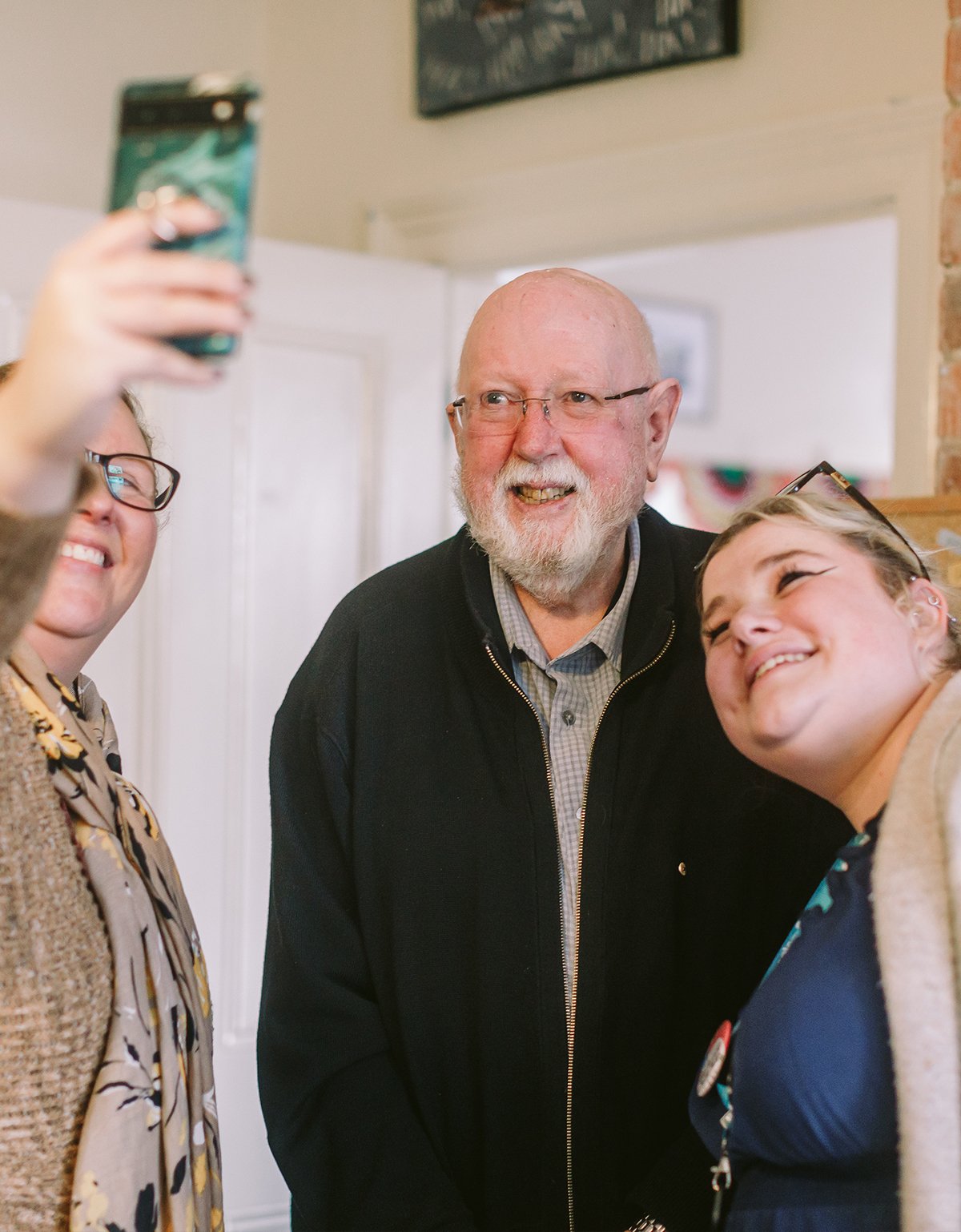
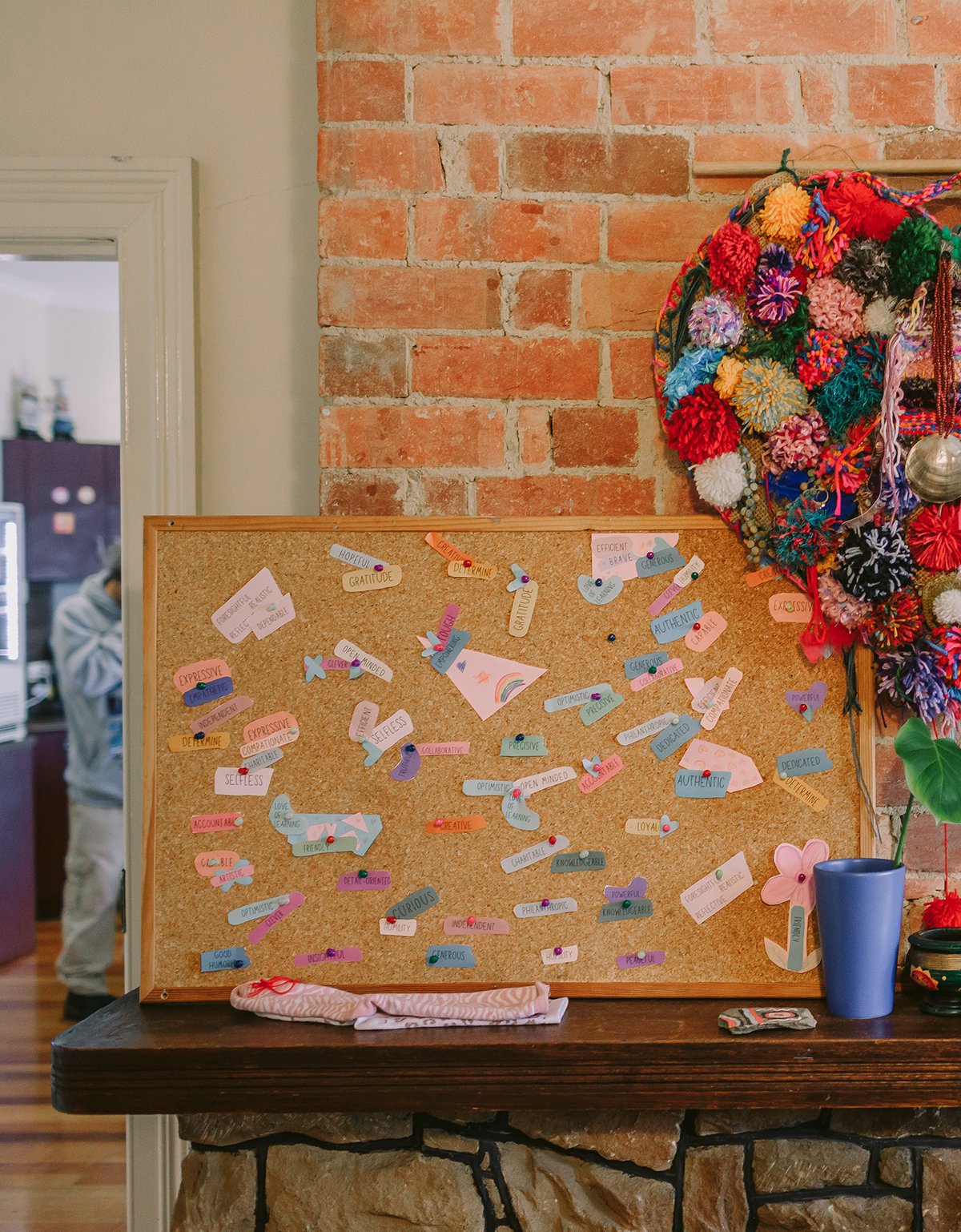
This colony was to be open to all who came. By 1974 we were open seven days a week for anyone who needed help. And I worked seven days a week on the front line.
At the same time, Jim and Margaret were new parents. They would have four children in the end. The Church cut Jim’s stipend in half, since he was spending half his time building a place for troubled youth. Margaret started a toy library for people with disability and launched the Down Syndrome Association of Tasmania, inspired by one of their children who was born that way.
“This colony was to be open to all who came. By 1974 we were open seven days a week for anyone who needed help,” says Jim. “And I worked seven days a week on the front line.”
Colony 47 and the beautiful old church helped launched lives, careers, and both new arts organisations and vehicles for gay rights. Generous members of the church gave money and time, to help it thrive. The Colvilles themselves were stunningly broke, at times, and stunningly unpopular with leaders in Hobart and with the Church itself. The police didn’t like the kids, the National Trust didn’t like what Jim did with the door of the church, and politicians didn’t like any of it. Colony 47 was nearly shut down after accusations that it was a house of ill repute. One day, when they were about to be evicted by the Church, Jim organised a photo opportunity with children and teddy bears sitting out on the gutter on Davey Street.
“The Church said, ‘Oh he won’t do that.’ And somebody who knew me better said, ‘Oh yes he will.’ And the Church realized it wouldn’t be good media. Nobody cared about the rough kids but little ones with sad faces on the front page of the paper? The Church never charged rent again.”
It was deeply serious, deadly serious, what Colony 47 was up against at the time. “This is where girls came if they were pregnant,” says Jim. “They were rejected by their families, by their communities, by the Church, and they were so devastated. Some of them had been raped, some by family members. We tried to find solutions when they came to us but back then some girls were committing suicide or having backyard abortions. It was impossible to get contraception at the time. They accused me of encouraging promiscuity on a grand scale and corrupting a generation of youth with contraception. No, I argued. Prevention of an unwanted pregnancy was better than abortion. And so I decided to distribute contraceptives on the street, which meant I would be arrested and jailed. Just when I was about to do it, we got some political support and they changed things. Still, funding to Colony 47 was cut by some.”
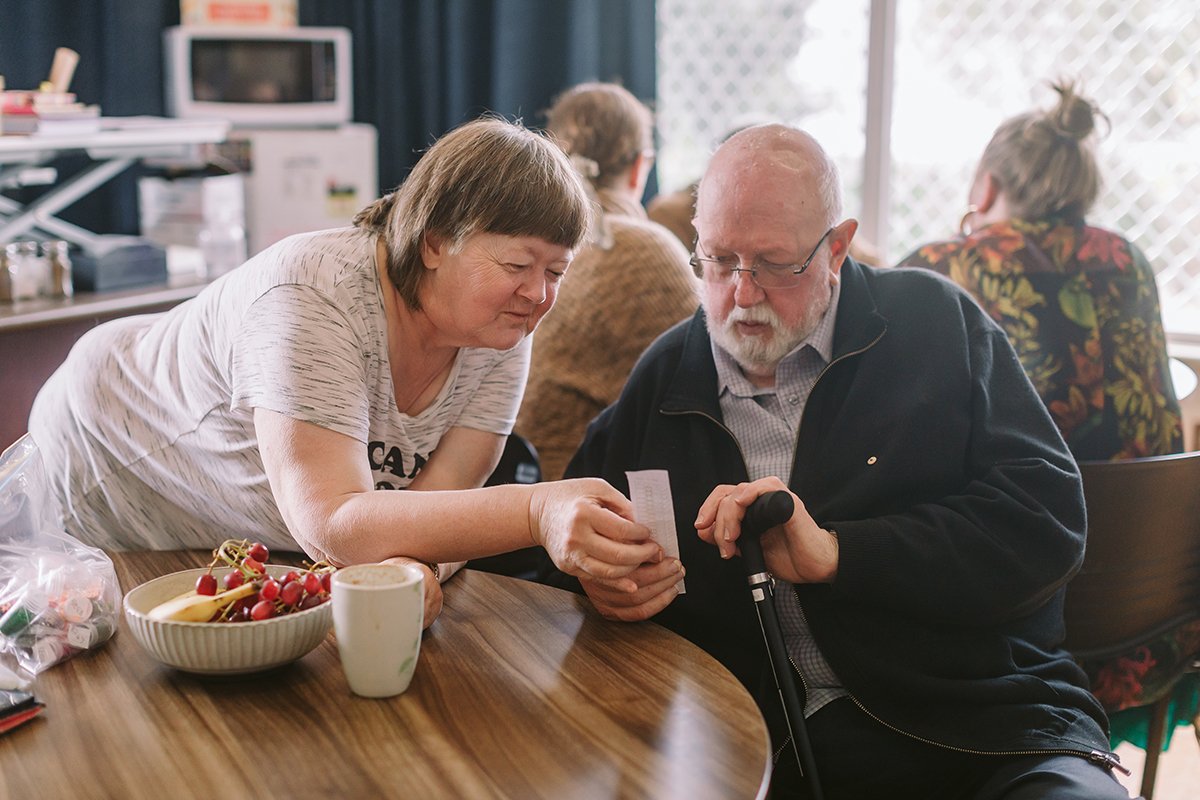
When Jim and Margaret first arrived in East Devonport in 1967, a year of horrific bushfires, people suggested it was God expressing anger and displeasure. Some people noted the irony, rather loudly, when Jim and Margaret lost their first home, in a landslip, and the insurance company would not help them because it was an “Act of God.”
Neighbours said, “You’re a minister. Why didn’t He warn you?” Jim replied, “She forgot to tell me.” Ungenerous people made similar suggestions when one of their children was born with Down Syndrome and, more recently, when Margaret died from lung cancer despite never having smoked.
But as Colony 47 celebrates its 50th anniversary, Jim focuses entirely on the good it has done. Jim’s passion for young Tasmanians helped generations of them navigate a difficult and sometimes dangerous time, and to emerge into adulthood with confidence and pride. Even his critics would agree the economic and social benefits from those risks he took are immeasurable. Both he and Margaret were honoured as AM, Members of the Order of Australia, for their contributions to Tasmania and the nation.
There is a solar garden in front of Jim’s house and a proper garden in the back. Chickens and roosters wander his yard. The Church removed him from the Ministry in 1979 and reinstated him in 1990, and he still performs the odd service. Jim served 39 years as Justice of the Peace but he had to retire by law when he turned 85. He has officiated 86 weddings in the chapel he built on his property and many baptisms. Jim conducted the marriage ceremony for his gay granddaughter.
The teenagers were not always kind to Jim, but in his 85th year he mostly sees the comedy in the exploded soft drink cans in the fireplace and the “gifts” wayward youth would bring him that would require immediate return to the real owners before the police show up. There was also the drawing of the Founder on the wall where the youth, staff and sometime even Jim himself, would throw darts out of frustration.
There will always be teenagers. There will always be Colony 47, though as times change, so do the meanings of words. In their 50th year, Colony 47 rebranded as Home Base—a name chosen by young Tasmanians that better reflects the organisation’s purpose.
Like most Tasmanians, Jim is most comfortable talking about overcoming obstacles and least comfortable boasting. He achieved nothing alone.
“Oh it isn’t me,” he says, “it never was. I was always part of a team.”

We worked with southern Tasmanian photographers Fred + Hannah for this Tasmanian story.
Read about more Tasmanians
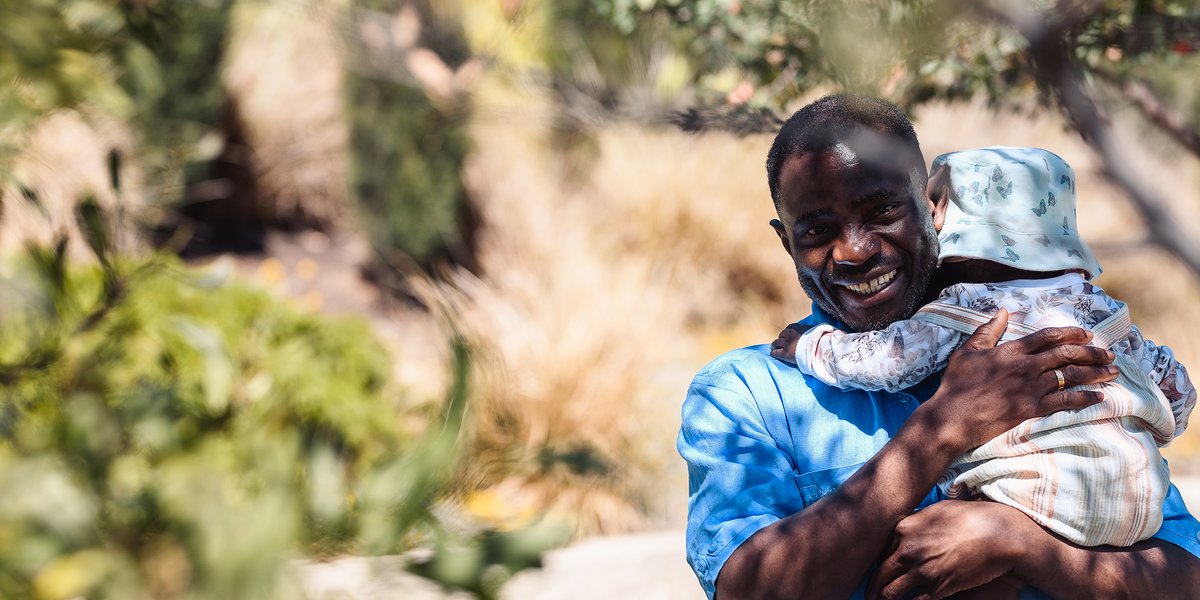
John Kamara
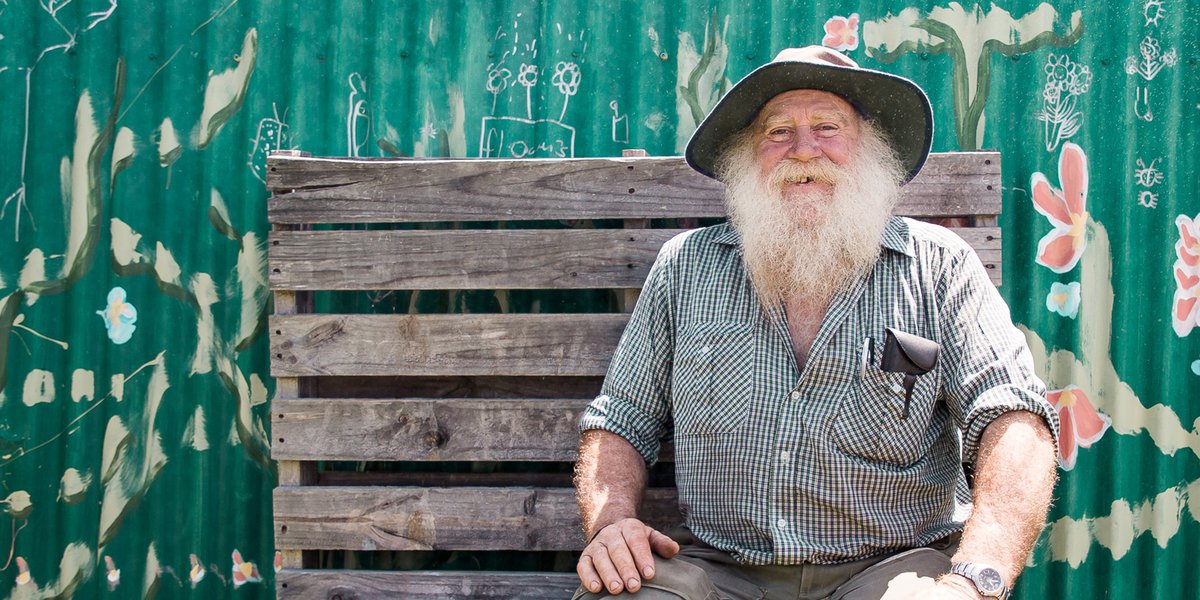
Peter Richards
